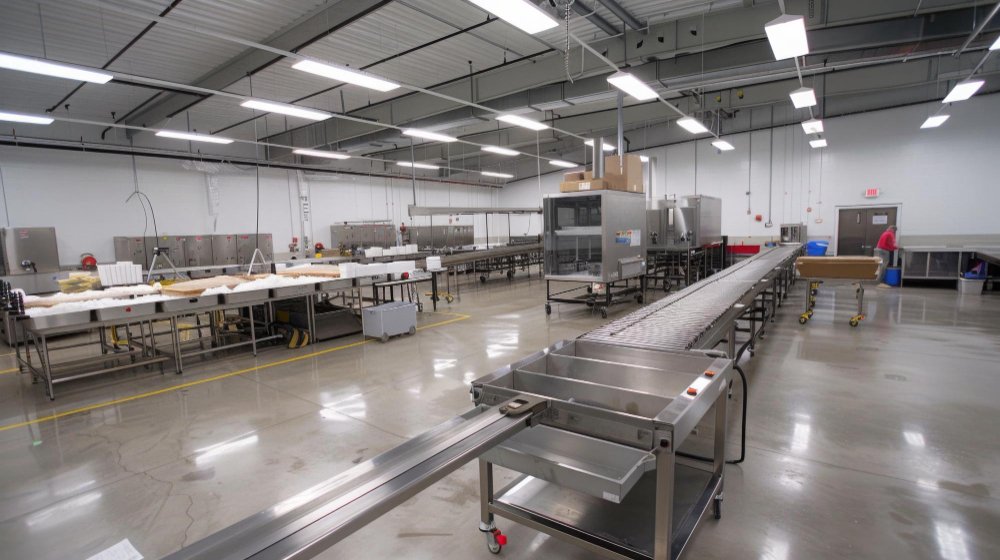A commercial painting project is a major undertaking that can significantly impact your building’s appearance, function, and value. Whether you’re refreshing a retail space, updating an office, or maintaining a warehouse, planning is crucial. A well-thought-out approach can save you time, money, and hassle. It also helps ensure the results meet your business’s standards and expectations.
Before you pick up the phone or book a painter, there are several key elements to think about. From choosing the right colours to scheduling the work, every detail matters in achieving a smooth and successful outcome.
If you want lasting results, working with experienced commercial painting contractors is essential. These professionals understand the demands of commercial environments and can guide you through every stage—from prep work to final inspection.
Understand the Scope of Work
Before starting, take the time to define the full scope of the painting job. Are you repainting just the interior, or does the exterior need work too? Will the ceilings, floors, and trim be included? Is there surface damage that needs repair before painting can begin?
Being clear about what needs to be done helps avoid misunderstandings later. It also ensures the contractor can provide an accurate quote and timeline. Make a checklist of areas to be painted and note any challenges, such as high ceilings, textured walls, or specialist coatings.
Choose the Right Colours and Finishes
The colour scheme you choose sets the tone for your business. It affects how clients perceive your brand and how employees feel in the space. For example, calm tones may work well in offices, while vibrant colours suit retail environments.
Beyond colour, the finish also matters. Matte, satin, or gloss paints all have different advantages depending on the setting. Gloss finishes are easier to clean but may highlight wall imperfections. In contrast, matte finishes are more forgiving but can be harder to maintain in high-traffic areas.
Discuss your goals with your contractor so they can recommend the best options based on your space and usage.
Assess Surface Conditions
Every good paint job starts with proper surface preparation. If surfaces are dirty, cracked, or peeling, the new paint won’t adhere well, and it won’t last. Take a walk through your premises and inspect the walls, ceilings, and trim for any issues.
This is especially important in older buildings where previous paint jobs may be failing or where moisture problems exist. Addressing these problems early helps prevent costly repairs down the line and ensures a professional, long-lasting finish.
Plan Around Business Operations
Timing is everything in a commercial painting job. You’ll need to think about how the work will affect your business hours, employees, and customers. Can the painting be done outside of working hours or in stages to limit disruption?
For larger projects, you may need to plan temporary closures or alternative workspaces. A good painting contractor will work with you to build a schedule that keeps your business running smoothly while still completing the job on time.
Consider Safety Regulations and Compliance
Commercial painting involves working at heights, handling chemicals, and operating equipment. Make sure the team you hire is fully insured, trained, and follows all health and safety regulations. This protects not only the workers but also your staff and customers.
In some cases, especially in healthcare or food service environments, you’ll need to comply with strict safety or hygiene standards. Let your contractor know if your business has any specific compliance requirements so they can prepare accordingly.
Set a Realistic Budget
It’s important to have a clear understanding of your budget before work begins. Costs will vary depending on the size of the space, the condition of the surfaces, and the materials chosen. Be wary of quotes that seem unusually low—they often leave out key services like prep work or quality paints.
Instead, focus on value. A higher upfront cost often pays off in longer-lasting results and fewer touch-ups in the future. Be honest with your contractor about your budget so they can suggest cost-effective solutions without compromising quality.
Check for Warranties and Guarantees
Always ask if the work comes with a warranty. A reputable contractor will stand behind their work and offer guarantees on both labour and materials. This gives you peace of mind and protects your investment.
Don’t forget to get all agreements in writing. A detailed contract should outline the scope of work, materials to be used, timelines, payment terms, and warranty details. Clear communication from the start helps avoid misunderstandings later.
Work with Experienced Professionals
The success of your commercial painting project depends largely on the people doing the work. Hiring experienced, professional commercial painting contractors ensures that your project is handled with care and expertise.
These contractors bring more than just brushes and rollers. They understand scheduling, safety, and the importance of a flawless finish in a commercial setting. Working with a trusted team also means fewer headaches and better results.
FAQs
What should I ask before hiring a commercial painting contractor?
Ask about their experience with similar projects, references, licensing, insurance, timelines, and if they offer warranties. It’s also important to understand how they handle surface prep and scheduling.
How long does a commercial painting job usually take?
The timeline depends on the size and complexity of the job. Small interiors might take a few days, while large exterior projects can take several weeks. Your contractor should provide a detailed schedule.
How do I choose the right paint for my commercial space?
Choose paint based on the function of each space. High-traffic areas benefit from durable finishes like satin or semi-gloss, while offices might suit matte finishes. Consider colour psychology as well for branding and mood.
Can painting be done outside of business hours to avoid disruption?
Yes, many commercial painting contractors offer flexible scheduling, including evenings and weekends, to minimise downtime for your business.













Leave a Reply